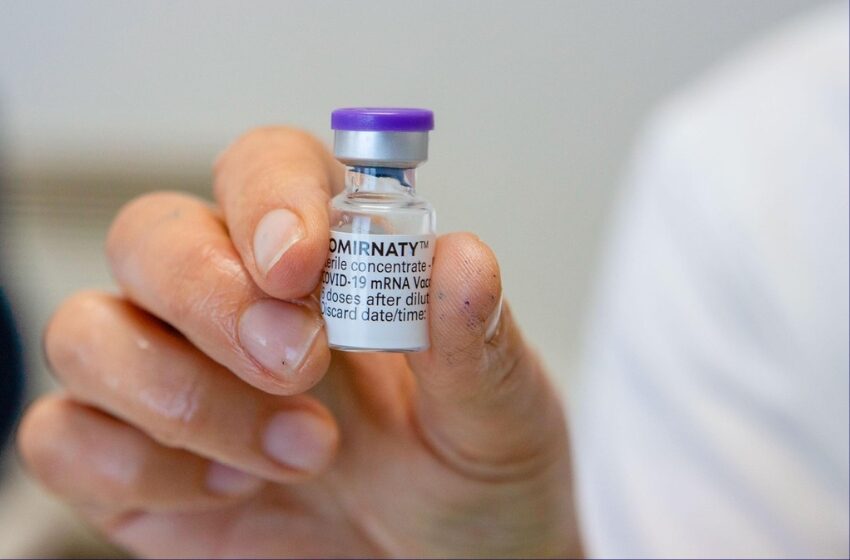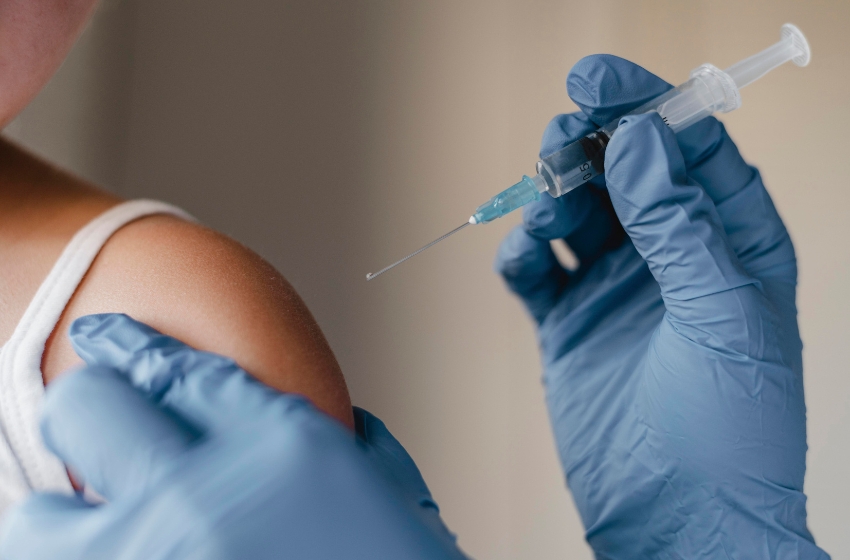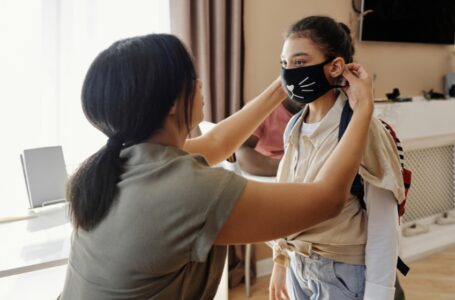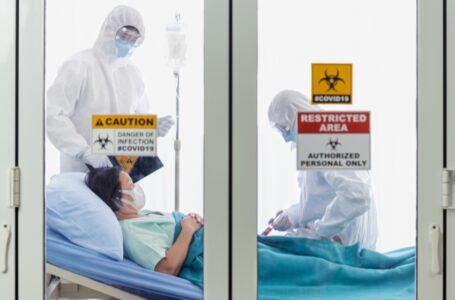Everything you need to know about (Comirnaty) Pfizer

The Australian Government Department of Healthcare ensured vaccine availability throughout the country. Thanks to its effort, clinics and immunisation providers are able to administer vaccine doses according to one’s health condition and age. However, you should be aware of vaccine-related information to make an informed decision. For instance, Pfizer is among the top two vaccines doctors or medical professionals give people.
Pfizer Approval in Australia
The Therapeutic Goods Administration (TGA) approved (Comirnaty) Pfizer for clinics and doctors to use it as a primary course for five years and above people. Also, it has been approved as a booster shot for people aged 12 years and above. Take a look at the chronological dates of the vaccine’s approval in Australia:
- 25 January 2021 (primary course – for people 16 years and above)
- 25 June 2021 (primary course – for people12 years and above )
- 26 October 2021 (booster – for people 18 years and above)
- 3 December 2021 (primary course – for people five years and above) (5 to 11-year formulation)
- 27 January 2022 (booster – for people 16 years and above)
- 8 April 2022 (booster – for children aged 12 years and above )
Explain the dosing schedule of Pfizer
Primary Course
ATAGI recommended that people get Pfizer primary course in doses eight weeks apart from each other. However, you can reduce the dosing interval to three weeks; the health advisory group suggests maintaining a shorter interval for those at higher risk of getting severe Covid-19. Besides, older adults and people with underlying medical conditions must consider shorter intervals.
Also, it would help if you remember that a person gets complete protection against Covid-19 seven to fourteen days after their second dose. On the other hand, severely immunocompromised people should get a third dose as a part of their primary course. Also, TGA has confirmed that doctors can administer Pfizer as a third dose and typically give it eight weeks after the second dose of the primary course.
If you are suffering from severely immunocompromised diseases, read about third doses.
Pfizer as a booster dose
Doctors and healthcare workers can administer Pfizer as a booster dose for 12 years above aged people. Moreover, they can give it three months or more after the primary course, and some people need to have a second booster dose(fourth dose) precisely three months after the first booster. Also, if you still need more information, you can read about the booster doses. However, if you have had Covid-19 before, you must wait for at least three months after your confirmed infection to get vaccinated.
Pfizer vaccine details for 5 to 11-year-old children
The Therapeutic Goods Administration(TGA) has given provisional approval to Comirnaty(Pfizer) vaccine for five years and above aged children. Furthermore, you must know that vaccinating children is essential to protect them against Covid-19. And it prevents them from spreading the virus to their siblings, grandparents, parents and the community.
In addition, you can clear doubts regarding the same by reading available data on COVID-19 vaccines and children.
What does the Pfizer Vaccine contain?
Pfizer is a messenger RNA type (mRNA) vaccine that uses a genetic code known as RNA to enable your body cells to generate specific spike protein of Coronavirus. As a result, the immune system cells acknowledge the spike protein as a threat and build an immune response against it. Nevertheless, the RNA from the vaccine does not cause any changes to your DNA; eventually, your body breaks it down.
And Pfizer does not contain any live virus; hence it cannot cause Covid-19 in people. You can read more details on Comirnaty (Pfizer) Consumer Medicine Information document.
What are Pfizer’s benefits?
Notably, the benefits of vaccination (Pfizer) exceed whatever side effects it has on people. Moreover, the vaccine’s clinical trial indicates that Pfizer effectively prevents Covid-19 among 12 years and above aged people. Hence, it is reasonable to point out that people with Pfizer’s two doses are 95 percent less likely to get sick from Covid-19 compared to those who did not vaccinate.
Besides, the vaccine is similarly effective for 65 years above aged people and people with a few stable pre-existing medical conditions.

What are some of the side effects of Pfizer?
Millions of people have received Pfizer and have reported little to no side effects in people. But it is customary to notice mild reactions to all vaccines; hence, you may see some temporary side effects after getting Pfizer. So, some of the side effects are as follows:
- Headache
- muscle or joint pain
- fever and chills.
- injection site pain or swelling
- tiredness
Pfizer vaccine’s less common side effects include:
- enlarged lymph nodes
- feeling unwell
- pain in the arm or leg
- Insomnia
Thankfully, most side effects of the Pfizer vaccine are mild and go away within one or two days; according to the AusVaxSafety data, the side effects usually occur after the second dose.
What are the rare side effects?
Severe allergic reactions known as anaphylaxis and heart diseases, including Myocarditis and Pericarditis, are rare side effects of the Pfizer vaccine.
Myocarditis or Pericarditis
In some rare cases, people suffer MyocarditisMyocarditis (inflammation of the heart) and pericarditis (inflammation of the membrane around the heart) after taking the Pfizer vaccine. However, most times, people encounter mild symptoms and recover quickly.
The TGA reports that these rare effects on the heart typically occur:
- Within one to five days of vaccination
- predominantly after the second dose
- more often in men aged under 40.
Moreover, regardless of gender, age or dose, people can encounter the following symptoms:
- Chest pain
- pressure or discomfort in the chest
- Irregular or skipped heartbeats or ‘fluttering.’
- fainting
- shortness of breath
- pain when breathing.
Therefore, after getting the Pfizer vaccination, you must contact the doctor or go to the hospital if you undergo any abovementioned symptoms.
Meanwhile, reports and research suggest low risks of developing Myocarditis and Pericarditis. For example, US reports indicate that there were 10 cases per million after the first Pfizer doses and 67 cases per million after the second doses. Besides, TGA continues to track the risks in the Australian population.
Additionally, the risk in children aged five and above is not yet ascertained; clinic trials in children aged five and above are inconclusive due to insufficient participants. So, researchers could not successfully assess the rate of MyocarditisMyocarditis and pericarditis in children. Nevertheless, there are no specific safety concerns, as indicated by millions of vaccine doses administered abroad to children 5 to 11 years old.
Additional details
If you still have doubts, you can read additional information regarding MyocarditisMyocarditis and pericarditis and COVID-19 vaccines here. Likewise, you can read about it on Melbourne Vaccine Education Centre’s page on MyocarditisMyocarditis and pericarditis.
Essential Precautions
People with specific conditions need to follow specific measures like staying under observation for 30 minutes after getting the vaccine or consulting an allergy specialist. Also, inform your immunisation provider about the following:
- an allergic reaction to a previous dose or a component of an mRNA COVID-19 vaccine (Pfizer or Moderna)
- Anaphylaxis to other vaccines or medications – your provider can check that there are no standard components with the Pfizer vaccine.
- Confirmed mastocytosis with recurrent anaphylaxis that requires treatment.
Moreover, you need to inform your immunisation provider if you take blood-thinning medication (anticoagulant). Besides, they can give accurate advice and suggest the best timing to get the vaccine, but you must follow additional precautions such as :
- Recent (i.e. within the past three months) Myocarditis or pericarditis
- Acute rheumatic fever or acute rheumatic heart disease (with active myocardial inflammation)
- Acute decompensated heart failure.
On the other hand, people who develop MyocarditisMyocarditis and pericarditis after a Covid-19 vaccine must avoid further doses. Instead, they must discuss and look for alternative options for other Covid-19 vaccines. Finally, Pfizer is safe for immunocompromised people and pregnant and breastfeeding women; if you are planning for pregnancy, you can take the vaccine without any doubts.
Who should avoid Pfizer Vaccine?
Doctors recommend people avoid the Pfizer vaccine:
- If they have had a severe allergic reaction (anaphylaxis) to a previous dose of the vaccine
- If they have anaphylaxis after exposure to any component of the vaccine, including polyethylene glycol (PEG)
- If they have Myocarditis and/or Pericarditis attributed to a previous dose of the vaccine
- If they have any other serious adverse event attributed to a prior dose of an mRNA(Pfizer or Moderna) vaccine.
What to do after getting Covid-19 vaccination?
It would help if you knew the steps to follow after getting your vaccination; read what to do after you are vaccinated and how to get your vaccination certificate. Similarly, you need to know about the essential steps to staying safe and the steps to manage your side effects.
In addition, gather relevant information about what to do if you have side effects.





